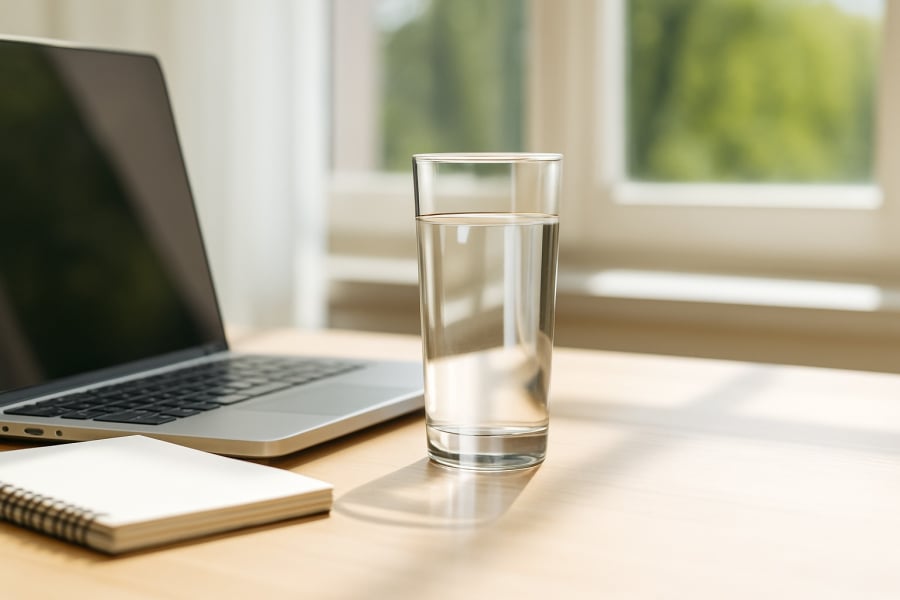Kidneys: The Unsung Heroes of Our Body
Our kidneys play a vital role in keeping us healthy by filtering our blood, removing waste, and maintaining fluid and mineral balance. However, they don’t give us many warning signs when something is wrong. Unhealthy habits can slowly damage our kidneys, and young people often don’t realize this until the damage is severe.
In today’s fast-paced world, many young people are unknowingly harming their kidneys with seemingly harmless actions. Here are five common habits to be aware of to maintain long-term kidney health.
Not Drinking Enough Water
Water is essential for our survival, and it also helps our kidneys filter blood and flush out toxins. However, many young people today are so busy with work or simply forget to drink water, leading to dehydration. This results in a higher concentration of waste in the urine, creating an environment conducive to kidney stone formation and putting extra strain on the kidneys.
Experts recommend that adults drink between 1.5 and 2 liters of water daily. This amount can vary depending on body type, weather conditions, and physical activity levels. A handy tip to stay hydrated is to always keep a water bottle nearby or set reminders on your phone.

Holding Your Pee
Another common bad habit is holding your pee. When we’re focused on work or too lazy to move, we often ignore the urge to urinate. This causes the urine to stay in the bladder for longer, providing an ideal environment for bacteria to grow and leading to urinary tract infections. If left untreated, the bacteria can travel up to the kidneys, causing kidney inflammation, a serious and difficult-to-treat condition.
Listening to your body’s natural urges and peeing when needed not only makes you feel more comfortable but is also a simple way to take care of your kidneys.
A High-Sodium Diet
Vietnamese people tend to consume a lot of sodium in the form of fish sauce, salt, and flavorful spices. In addition, the popularity of fast food and processed meals further increases sodium intake. A high-sodium diet causes the body to retain water to balance the excess salt, putting extra pressure on the kidneys and leading to high blood pressure, a primary cause of chronic kidney disease.
According to the World Health Organization (WHO), adults should consume less than 5 grams of salt per day. To reduce your sodium intake, try to develop a taste for blander food, eat more fresh fruits and vegetables, and cut down on processed foods.
Overusing Painkillers
Headaches, back pain, and stomach aches are common ailments. Many young people buy over-the-counter painkillers without consulting a doctor. What they may not realize is that long-term or high-dose use of painkillers, especially non-steroidal anti-inflammatory drugs (NSAIDs), can damage the kidneys and even lead to kidney failure.
Always exercise caution when taking medication, follow the instructions provided, and never increase the dosage or prolong the usage without medical advice.
Sleep Deprivation and Chronic Stress
The demands of work and study often lead to sleep deprivation and chronic stress in young people. Lack of sleep and elevated stress levels cause the body to release harmful hormones that can damage various organs, including the kidneys. Additionally, staying up late often goes hand in hand with late-night snacks, tea, and coffee, which indirectly increase the risk of kidney disease.
To keep your kidneys healthy, aim for 7-8 hours of sleep nightly, avoid overworking yourself, and make time for relaxation and light exercise to manage stress.

Showing Your Kidneys Some Love
Our kidneys work quietly in the background, rarely demanding attention. However, when they are damaged, treatment can be complex and costly. By adopting a healthier lifestyle and breaking free from unhealthy habits, we can show our kidneys the love and care they deserve.
Start with these simple steps: drink more water, reduce your salt intake, answer nature’s call promptly, get to bed earlier, and avoid self-medicating. Stick to these small changes, and your kidneys will thank you by keeping you healthy throughout your life journey.



































